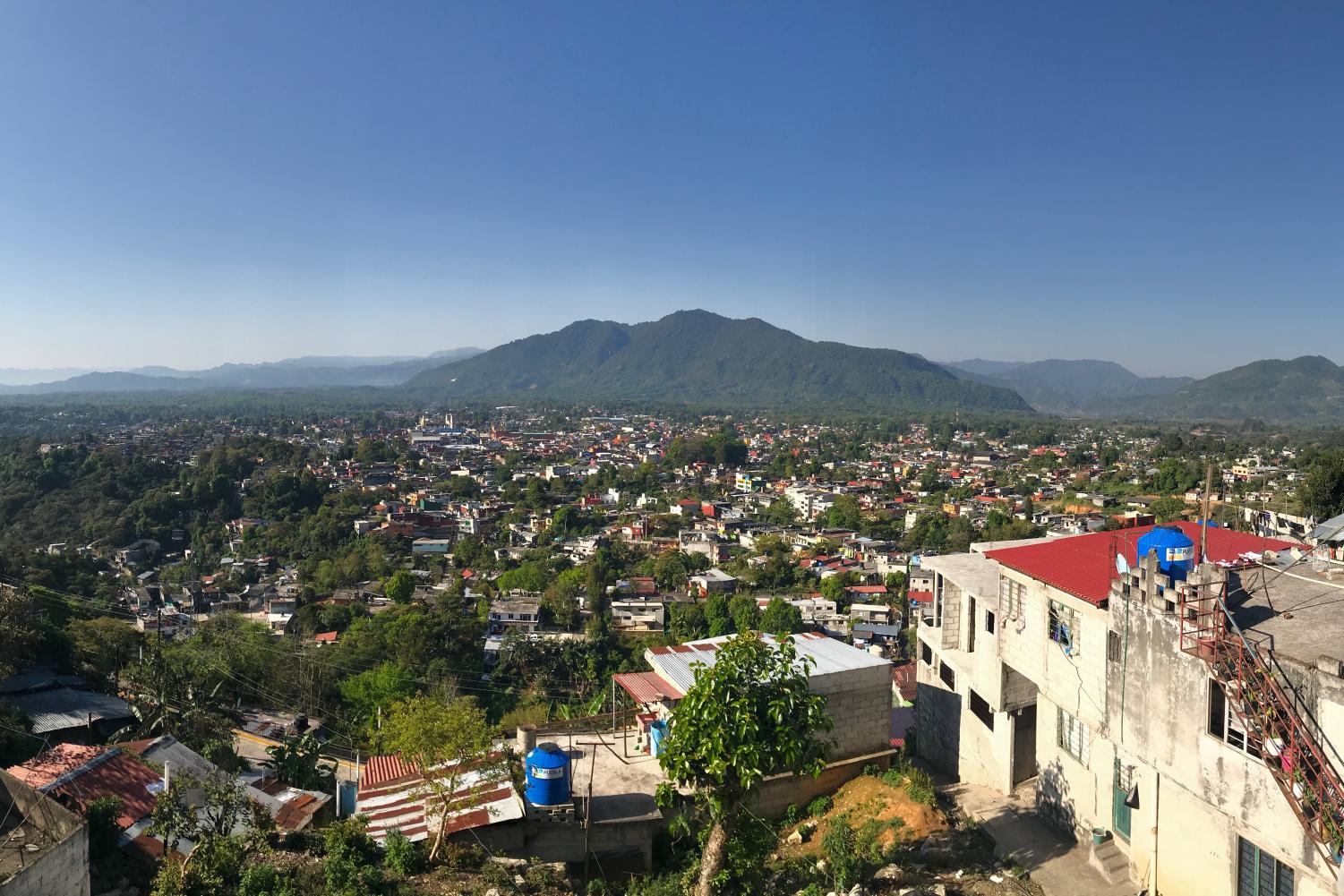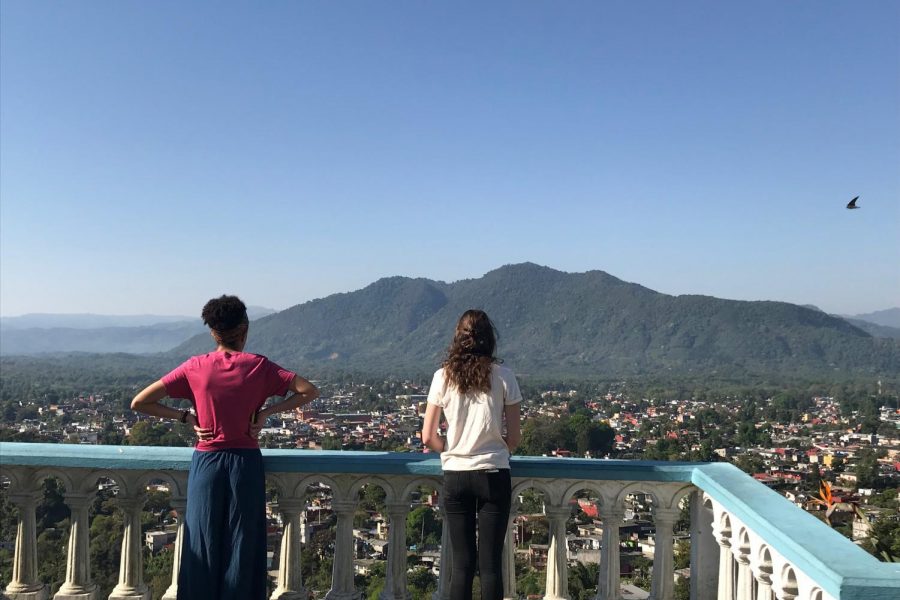City High Interact Visits “Hill of the Bumblebees”
March 29, 2018
Through the rain, five City high schoolers sat in a van as they drove to their next location–an orphanage. High up in the mountains and surrounded by clouds, they made their way around winding roads and looked out the window at colorful houses and waterfalls.
These five high schoolers accompanied Rotary Club on a service trip to an Aztec town in the state of Puebla, Mexico, called Xicotepec. It translates to English from Aztec as the “Hill of the Bumblebees.” Three scholarships were awarded to high school students who applied, and two of the students to receive them were City High senior Eric Thomas ‘18 and junior Emmeline Kraus ‘19. This was Eric’s first time traveling out of the country, and it was Kraus’ first time ever traveling without the accompaniment of her parents or brother, an opportunity that prompted Emme’s interest in the trip.
“I decided to go on this trip to experience my own individual events aside from my family. I wanted to take the opportunity to explore my interests and become my own independent person,” Kraus said.
Kraus and Thomas expressed they had some reservations before attending the trip, but they quickly realized they had nothing to be worried about. Though Kraus was the only junior on the trip, she felt she was easily able to form friendships and bonds with the other students who were with her. Thomas had been concerned about the language barrier, as he had studied French in school instead of Spanish, but he found ways to communicate nonetheless.
“I knew nothing about Spanish, so I didn’t think I would be able to understand or communicate with the people from the town,” Thomas said. “From the little Spanish that I knew however, it all worked out fine. Everyone was really friendly and we were able to communicate through hand signals and gestures, and I also picked up on some phrases really quickly.”
Once in Xicotepec, the high schoolers stayed in a nunnery and shared a dorm with university students who had come to do either dental, pharmaceutical, or public health work. Each day the high schoolers were able to decide if they wanted to assist the dental students apply fluoride and give screenings to elementary school kids, distribute deworming pills with the pharmacy team, or join the construction crews of Xicotepec to mix cement, build bleachers, and paint the playgrounds of elementary schools.
“It was really rewarding to see the results of our work and be able to help out,” Thomas said. “After we finished our work at one of the elementary schools, the children sang the “I love you, you love me” song from the Barney TV show, and I was definitely tearing up a bit.”
During their last day in Xicotepec, the volunteers from the United States were invited to the Rotarian school of Xicotepec, where the students performed traditional dances from all 31 states of Mexico. Some of the volunteers were even pulled onto the stage to dance with the kids, and all of the volunteers were given hats and dreamcatcher necklaces as a gesture of thanks from the people of Xicotepec. Not only did the children in Xicotepec know the traditional dances of their Aztec culture, but many of the schools the volunteers worked at were taught in Spanish and another language– an Aztec language called Nahuatl.
“Something I didn’t know about the culture was how deeply connected the people of Xicotepec are to their heritage,” Kraus said. “At many of the events we attended we saw indigenous people wear traditional clothing, and they even performed dances for us that were from their Aztec descent. They were all very cognitive and aware of where they came from and who their ancestors are.”
Throughout the week the high schoolers were able to venture through the town, accompanied by Interact Club members of Xicotepec, and were able to see some of Xicotepec’s sights. Though they saw many historical and beautiful areas, both Kraus and Thomas said they appreciated the interactions they had with the people of the town the most.
“I didn’t expect everyone to be so kind,” Thomas said. “In my opinion, they were much friendlier than the people in the United States, something I realized once I returned home. The people of Xicotepec offered to give us food and items from their stores for free, and they were constantly giving us hugs and kisses,” When asked about whether or not Thomas had been concerned about his safety during his trip, especially with the way the media oftentimes covers the country of Mexico and Mexicans themselves, Thomas stated he experienced nothing but kindness.
“One misconception the United States has is that all parts of Mexico are dangerous and that many Mexicans are violent people, and though we were told to be careful with our belongings and to never go anywhere by ourselves, especially when in Mexico City, I didn’t feel I had to be any more concerned about my safety than I would in a big city in the U.S,” Thomas said.
Now that Thomas and Kraus are back, they are more aware of not only the cultural differences between the two countries, but also of their own lifestyles and values.
“One thing I gained from the trip is that I don’t need as much as I think I do,” Kraus said. “We had no access to television or clean water, and had very limited wifi, and so throughout the week I was less dependant on items I had found to be super important when I was in the United States, such as my phone and computer. While in Xicotepec I was more sociable and aware of my surroundings. We had to find alternatives to technology.”
The most important observation Kraus and Thomas said they took away from this experience was the ability to meet, interact with, and befriend the people of Xicotepec, people they had previously seen as far away and different from they. Due to the news and the portrayal of Mexico by the media, it was hard for both students to comprehend what Mexico and Mexicans were like, and they were pleased to see how easily they could relate and connect to the people they encountered.
“Before going down there I had this idea that people would act really differently, but of course they acted the same way any other person would,” Thomas said. “The culture may be different, but people are people, and it’s important we don’t forget that.”

